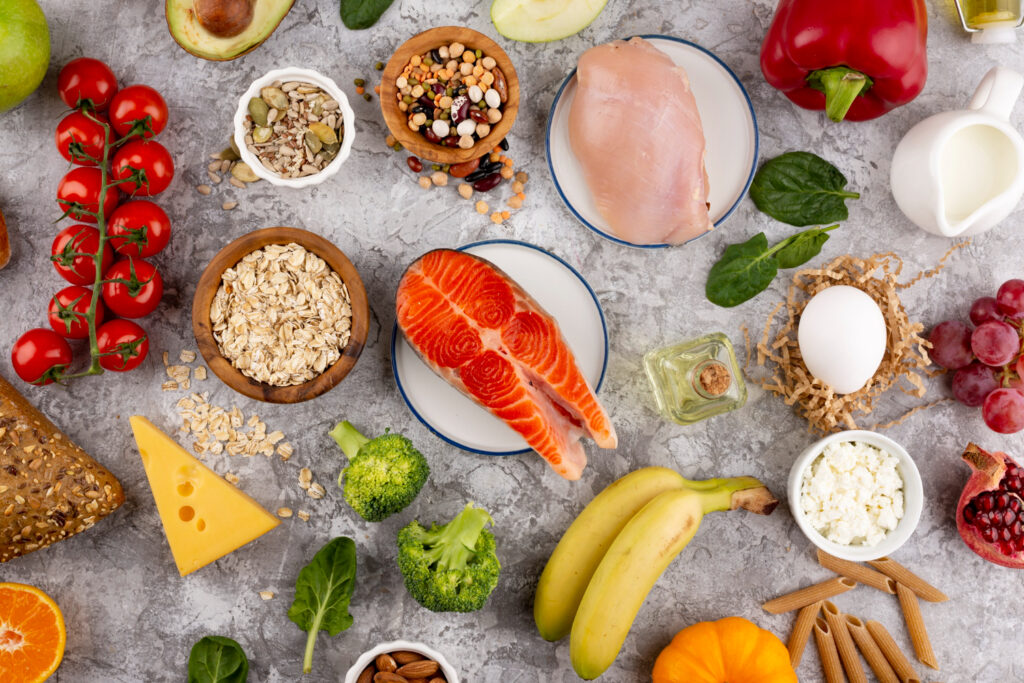Physicians are discovering that keeping an open refrigerator is one of the best methods to reduce inflammation instead of reaching for the medicine cabinet. You may permanently combat inflammation by eating an anti-inflammatory diet.
What is the effect of an anti-inflammatory diet? When your body detects something alien, whether a chemical, an invasive bacteria, or plant pollen, your immune system is triggered. This frequently starts an inflammatory phase. Your health is protected by sporadic bursts of inflammation that are targeted at genuinely dangerous invaders.
But occasionally, even in situations where you are not in danger from an outside invader, inflammation might continue day in and day out. At that point, inflammation may turn against you. Chronic inflammation has been connected to a number of serious diseases that affect humans, such as diabetes, cancer, heart disease, arthritis, depression, and Alzheimer’s.
One of the best resources for reducing inflammation is found in the grocery store rather than the drugstore. “A large body of experimental research has demonstrated that food or beverage ingredients may have anti-inflammatory properties,” says Dr. Frank Hu, an epidemiology and nutrition professor in the Harvard School of Public Health’s Department of Nutrition.
By selecting the appropriate anti-inflammatory meals, you might be able to lower your chance of getting sick. If you consistently choose the incorrect ones, you run the risk of hastening the onset of inflammatory diseases.
Foods that aggravate inflammation
Limit or stay away from these meals as much as you can:
- processed carbs, found in white bread and pastries
- Fried items such as french fries
- soda and other drinks sweetened with sugar
- processed meat (hot dogs, sausage) and red meat (burgers, steaks)
- lard, margarine, and shortening
The dangers of inflammatory foods to health
It should come as no surprise that the same things that are included in an inflammatory diet are also typically thought to be unhealthy for us, such as sodas, refined carbs, red meat, and processed meats.
“Some of the foods that have been associated with an increased risk for chronic diseases such as type 2 diabetes and heart disease are also associated with excess inflammation,” adds Dr. Hu. “It’s not surprising, since inflammation is an important underlying mechanism for the development of these diseases.”
Eating unhealthy food also increases the chance of weight gain, which in turn raises the risk of inflammation. However, the relationship between diet and inflammation persisted in multiple studies even after researchers took obesity into account, suggesting that inflammation isn’t the only factor. “Some of the food components or ingredients may have independent effects on inflammation over and above increased caloric intake,” according to Dr. Hu.
foods that reduce inflammation
Included in an anti-inflammatory diet are the following foods:
- tomatoes
- extra virgin olive oil
- green leafy foods, such collards, kale, and spinach
- nuts such as walnuts and almonds
- fatty fish, such as sardines, tuna, mackerel, and salmon
- fruits including oranges, cherries, blueberries, and strawberries
Anti-inflammatory dietary benefits
Conversely, according to Dr. Hu, there are foods and drinks that lessen inflammation and the associated risk of chronic illness. He highlights specific fruits and vegetables that are rich in natural antioxidants and polyphenols, which are plant-based beneficial substances, like blueberries, apples, and leafy greens.
Additionally, studies have linked nuts to a lower risk of diabetes and cardiovascular disease as well as a decrease in inflammatory marker levels. Coffee may also help prevent inflammation because it contains polyphenols and other anti-inflammatory substances.
Diet low in inflammation
Aim for a generally healthy diet in order to lower inflammation levels. A diet that closely adheres to the principles of anti-inflammatory eating is the Mediterranean diet, which emphasises a diet rich in fruits, vegetables, nuts, whole grains, seafood, and healthy oils.
A more natural, less processed diet can not only reduce inflammation but also have a visible impact on your mental and physical well-being. “A healthy diet is beneficial not only for reducing the risk of chronic diseases, but also for improving mood and overall quality of life,” adds Dr. Hu.


